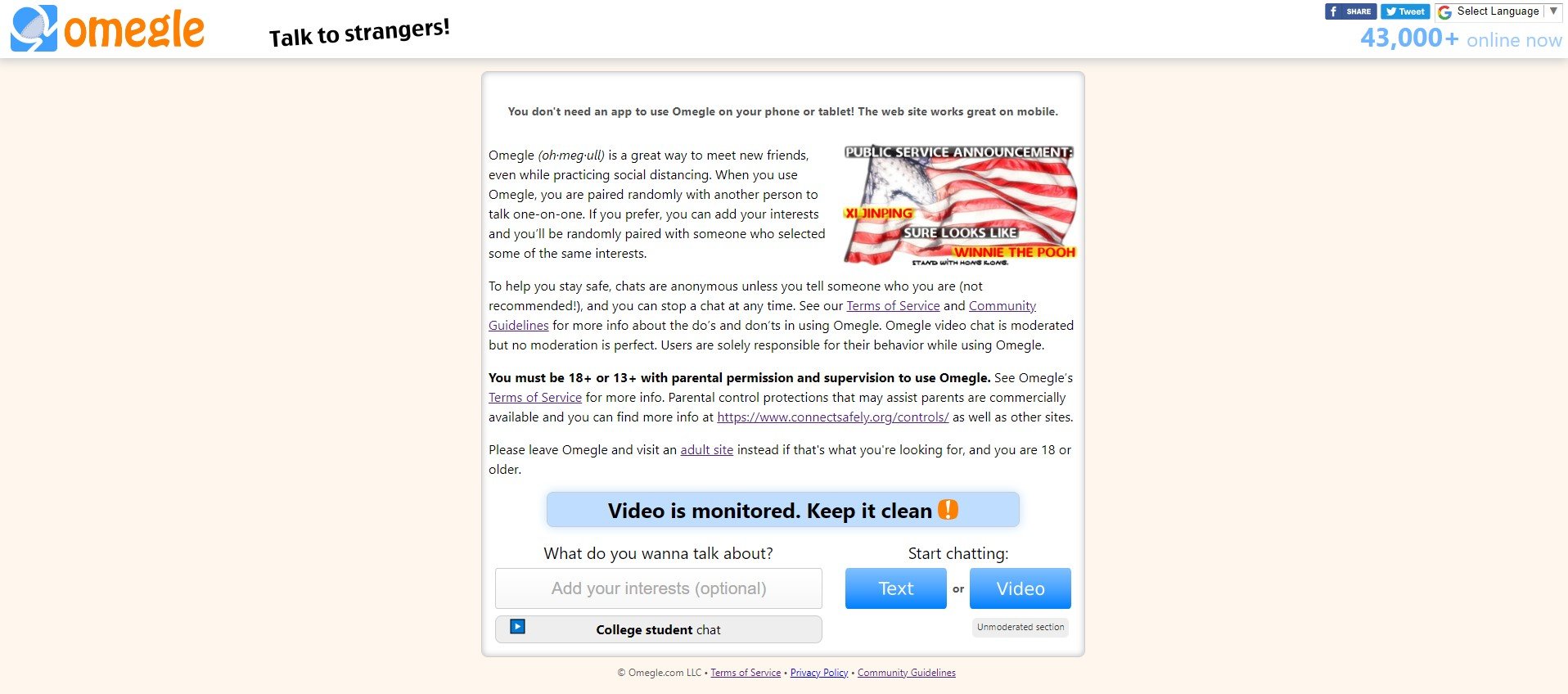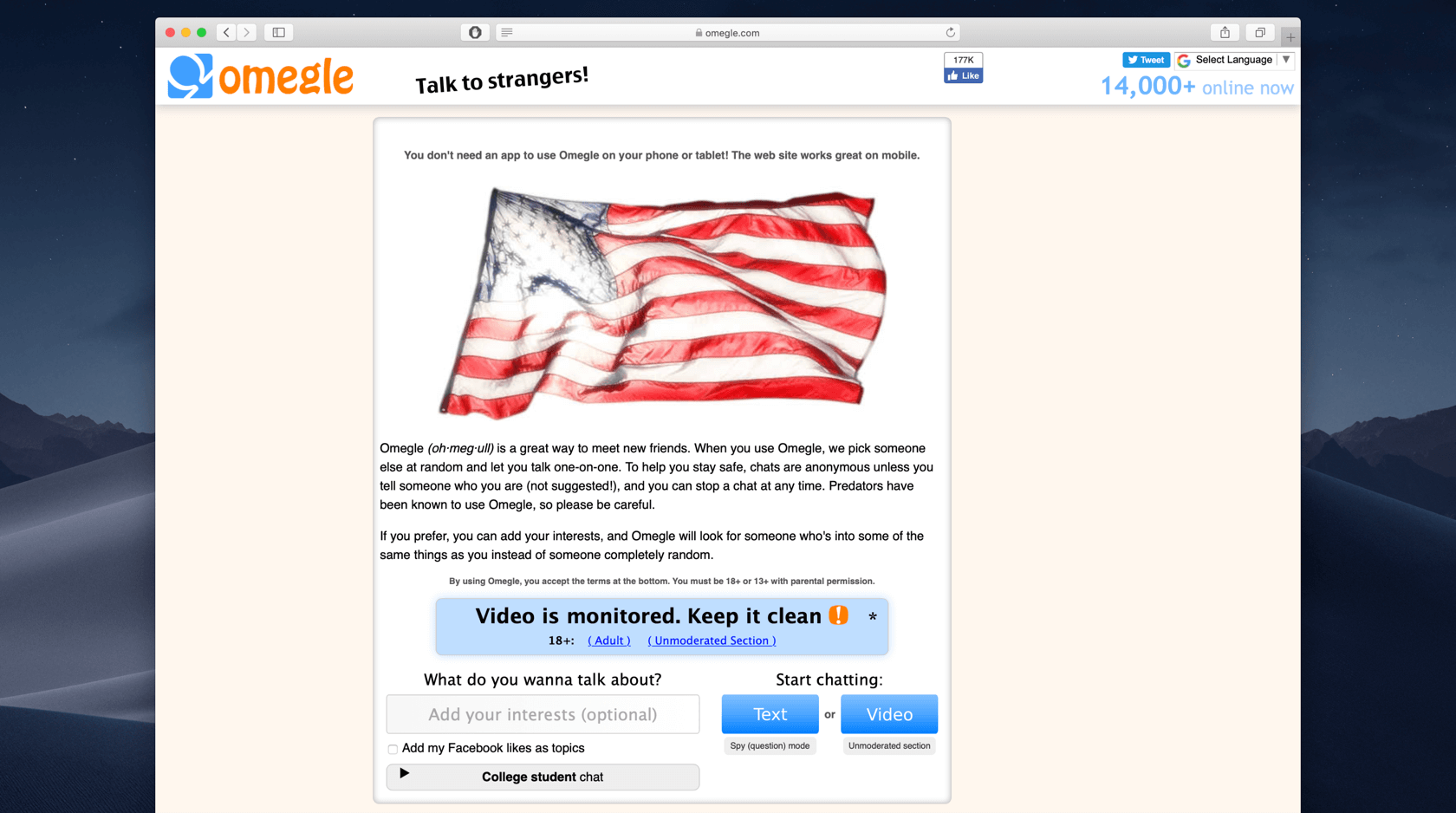For quite a while, a unique spot on the internet let people connect with others they had never met before. It was a place, you know, where conversations could just spark up out of nowhere, bringing together folks from different parts of the globe. This digital meeting ground, in a way, started with a simple idea: to make online interactions feel a bit more spontaneous, like bumping into someone new at a community gathering. It truly captured a certain spirit of discovery that many found quite appealing, offering a direct line to someone, anyone, anywhere, just about instantly.
The whole concept, it seems, came from someone who was, actually, pretty young at the time, just eighteen years old and still residing with their folks. This person, in some respects, wanted to build on what they genuinely enjoyed about being online, adding a kind of social unexpectedness that they felt was missing from other places. It was meant to be a straightforward way to chat with random individuals, perhaps finding a new friend or simply passing the time with someone completely fresh to your day, which, you know, can be a rather interesting experience.
This particular platform became, very quickly, a rather well-known spot for video conversations on the internet, allowing people to simply talk with strangers from all over the planet. It offered, for many, a genuine escape from feeling bored, providing what was, essentially, a free alternative to other random video chat options. You could, for instance, pick your country, indicate your gender, or even select a "couple" mode if you were with a friend, making it, in some ways, quite adaptable to what you were looking for in that moment.
Table of Contents
- The Start of Omegle - A Young Idea
- What Was Omegle All About?
- Omegle - How Did It Work for You?
- Finding Alternatives to Omegle - What's Next?
- The Legal Troubles of Omegle - What Happened?
- Omegle's Impact on Users - Was It Positive?
- Omegle Alternatives - Are They Any Good?
- Meeting People Online - The Omegle Legacy
The Start of Omegle - A Young Idea
The whole concept behind Omegle, as a matter of fact, really took shape when its creator was quite young, still just eighteen years of age. At that point in their life, they were, you know, living at home with their parents. The idea for this online space, it seems, came from a desire to expand on the things that this person genuinely liked about the internet. There was, apparently, a feeling that something was missing, a certain kind of social spontaneity that they wanted to introduce into the digital conversations people were having. So, the goal was to create a spot where people could simply jump in and connect with someone new, without much fuss or planning, which, for many, felt like a rather fresh approach to meeting people online. It was, in a way, about bringing a bit of that unexpected real-world interaction to the digital world, allowing for truly random encounters that could lead anywhere.
What Was Omegle All About?
Omegle, in essence, became known as a popular online video chat service. It gave people the chance to talk with individuals they had never met before, literally from any corner of the planet. The core idea, you see, was to offer a simple way to connect, to escape moments of quiet boredom, and to experience something different from your usual daily interactions. It was, quite simply, presented as a leading choice for those seeking an alternative to other random video chat options, and a big part of its appeal was that it was completely free of any charges. This accessibility meant that just about anyone with an internet connection could, in fact, hop on and start a conversation, which, for many, was a pretty compelling reason to give it a try. It truly opened up a world of immediate, unscripted communication for countless users, allowing for a unique kind of social interaction that felt, for many, quite liberating.
Omegle - How Did It Work for You?
When you decided to use Omegle, you had a few straightforward choices to make, which, you know, could shape your experience a little. You could, for instance, pick a particular country, or specify your gender, or even select a "couple" mode if you happened to be chatting with a friend. This gave you, in some respects, a bit of control over who you might meet, though the core of the service was still about random connections. The platform, as a matter of fact, prided itself on being super easy to use; you did not need to create any kind of account, and it was, indeed, entirely free to use. This meant, basically, that you could just show up, click a button, and start talking to someone new, which, for many, was a really attractive feature. It removed any barriers to entry, making it simple for people to jump into conversations without any prior commitment or sign-up process, something that was, actually, quite novel for its time.
Finding Alternatives to Omegle - What's Next?
With Omegle no longer around, people are, naturally, looking for other spots to have those spontaneous online chats. There are, apparently, several services that have stepped up, aiming to provide a similar kind of experience. For example, some platforms like "Omegla" have positioned themselves as the "new Omegle," suggesting they offer that familiar feeling of talking to strangers. With sites like Omegla.chat, you can, in fact, still chat with people you don't know, possibly make new acquaintances, or even, you know, try to find dates. These places, quite similarly, boast that you don't need to sign up for an account, and they are, typically, completely free to use, which, for many, is a really important factor. It means the barrier to just starting a conversation remains very low, allowing for that instant connection that many users enjoyed about the original Omegle. So, the spirit of random connection lives on in these newer spots, offering a chance to meet people without much fuss.
The Legal Troubles of Omegle - What Happened?
The story of Omegle, sadly, also includes some pretty serious legal issues, which, in a way, ultimately led to its stopping operations. At the point when it closed down, Omegle was, actually, facing a rather significant legal claim, amounting to twenty-two million dollars. This particular legal action had been put forward in the year two thousand nineteen by a young person from Oregon. This individual, you see, had become a victim of child sex exploitation, which, obviously, is a very serious matter. The platform had, for a long time, been accused of allowing, or even making it easier for, people who prey on others to operate. The legal claim suggested that Omegle, basically, knew about these problems but still allowed them to continue. This situation really highlights the difficult balance between offering open communication and keeping users safe, especially when interactions are random and largely unsupervised. So, the site, which began with an ideal of connecting people, ended up facing severe criticism for the harm that, tragically, occurred on its service.
Omegle's Impact on Users - Was It Positive?
Omegle, as a service, was, in some respects, designed with the simple goal of connecting people who didn't know each other for instant conversations. Whether these chats happened through typing or using video, the service aimed to be easy to get into and use. The creator, in fact, initially thought of it as a way to improve people's lives, and the lives of others, by offering a unique social outlet. However, the platform became, eventually, a direct target of various attacks, and the ultimate people who suffered were, really, the users themselves. All those individuals out there who had, you know, used Omegle, or might have considered using it, with the hope of making their lives a bit better, or connecting with others in a meaningful way, found themselves in a complicated situation. The idea was to create a space where nothing would distract you from truly meaningful interactions, but the reality, for some, turned out to be quite different. It shows how, sometimes, even the best intentions for connection can face unexpected and difficult challenges.
Omegle Alternatives - Are They Any Good?
After Omegle stopped running, many other online places popped up, trying to offer something similar, and some of them are, actually, pretty good at what they do. For instance, there's a service called Randotalk, which is, basically, a free choice if you're looking for something like Omegle. It's presented as a really good way to meet new people from all over the globe, offering that random connection many enjoyed. Then there's Uhmegle, which is, apparently, seen as a top alternative to the original Omegle. It lets you meet strangers based on things you might both be interested in, and it offers free, anonymous, and even moderated video and text chats. This moderation aspect is, arguably, a significant improvement for user safety. For young people who enjoy being social online, places like the new Omegle or Ometv are often suggested as premier choices, promising the excitement of meeting someone new. You can, for example, just start chatting with people you don't know and make new friends right away, which, for many, is a very appealing thought. So, yes, there are quite a few options out there that aim to fill the void, often with added features for a safer experience.
Meeting People Online - The Omegle Legacy
The idea of meeting new people instantly, through live video chats, continues to be a popular concept, and you can see Omegle's influence in many places. Shagle, for instance, is a free app for random video chats that lets you have live cam-to-cam conversations with people you've never met. This kind of platform, in some respects, carries on the spirit of immediate connection that Omegle popularized. The whole point of these services is to provide a unique online spot where you can simply connect with strangers for conversations that happen right away. Whether you prefer to type messages or see someone face-to-face through video, these services aim to be easy to get into and use. The core desire to connect with someone new, to have an unscripted conversation, or just to pass the time with an unknown person, is, apparently, still very strong. So, while Omegle itself is gone, the idea it represented, of spontaneous and accessible online meetings, continues to shape how people look for new connections on the internet, offering that thrill of discovering someone entirely fresh.
Related Resources:
Detail Author:
- Name : Madeline Legros
- Username : carolanne.damore
- Email : ashtyn41@yahoo.com
- Birthdate : 1989-10-11
- Address : 56015 Kitty Island Apt. 851 Friedrichton, DC 50630-6994
- Phone : +1.678.642.7284
- Company : Schroeder Inc
- Job : Computer Specialist
- Bio : Quos voluptates quia alias consequatur. Non aut est earum modi voluptates. Vitae ut saepe voluptas natus dolorem.
Socials
facebook:
- url : https://facebook.com/marcelinagoodwin
- username : marcelinagoodwin
- bio : Eum voluptatem ratione hic aut itaque dolor.
- followers : 2322
- following : 1739
tiktok:
- url : https://tiktok.com/@marcelinagoodwin
- username : marcelinagoodwin
- bio : Ullam sapiente expedita quidem tenetur.
- followers : 1228
- following : 592
linkedin:
- url : https://linkedin.com/in/marcelina_goodwin
- username : marcelina_goodwin
- bio : Ea est iste consectetur itaque.
- followers : 111
- following : 185
instagram:
- url : https://instagram.com/marcelina_goodwin
- username : marcelina_goodwin
- bio : Dolorem ullam nam et vero. Consectetur tempora ratione debitis ex rerum.
- followers : 5990
- following : 2043


